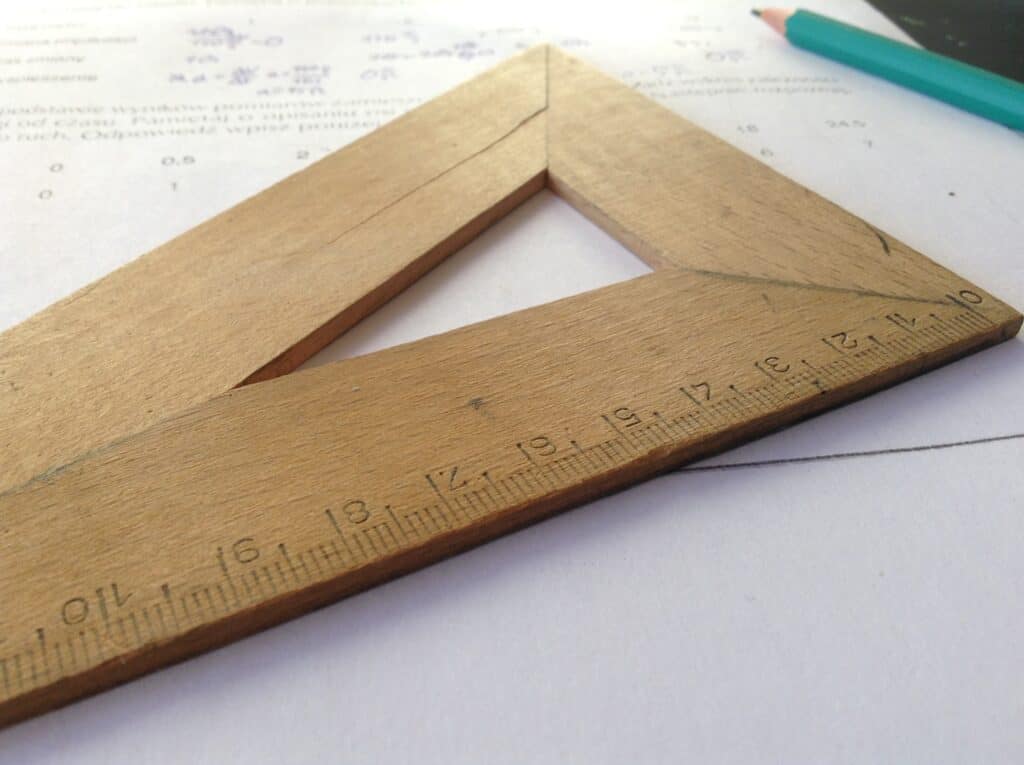So, you’ve got a week left to go until your VCE Math Methods exam and have no plan for your prep?
This article will give you about 3-4 hours of content to study each day of the week, allowing you to balance your Maths Methods study with your other subjects too!
Let’s get started!
Day 1: Syllabus Review
Days 2, 3 and 4: General Revision
Day 5: Do a Practice Exam
Day 6: Try a Second Practice Exam
Day 7: Final Revision
Day 1 of the VCE Maths Methods Study Plan: Syllabus Review
Step #1: Check the Syllabus
The first and most important day of your study plan: going back over the VCE Maths Methods study design.
Here is a short 2-step method to checking and revising the study design:
1. Go Through Each Syllabus Dot Point
Go through each dot point in the Methods Unit 3 and 4 syllabus.
2. Rate your understanding of the material on a scale from 0 to 5
A 0 means you have no clue how to answer a question related to this. A 5 means that you’re extremely confident with the content.
In both cases, you should be able to finish revising the Maths Methods syllabus in 10 minutes — but, don’t rush this crucial step if it takes longer!
Tip: This works whether you’re study for Units 1 & 2 or Units 3 & 4!
Step #2: Review Your Notes
The next thing to do is make sure that your notes are up to snuff — do your notes have all the info you need?
Let’s focus on the points you rated lower (0-2) in Step #1 and check how well your notes cover these areas. Definitely go back to the textbook to cross-check if there’s anything you missed out on.
Revision for Maths Methods is a different ballpark to content-heavy subjects, like English or Legal Studies.
Make sure you’re looking over past SACs or schoolwork and seeing which questions you keep getting wrong.
- Is there a trend to the questions you getting wrong?
- How do you fix this?
- What are the basic rules to the theorems in those questions?
If there are any rules or theorems you don’t recall, make sure to include them in your notes.
Step #3: Revise your Weak Spots
Once you’re know all your areas of weakness and improved your notes, go through the textbook again.
Depending on one of two situations you’re either in, you should:
Situation #1
If you have a decent idea of how to solve the questions, just jump into the chapter review and try to answer the questions.
Situation #2
If you need help, you can just turn back to the content to figure out how to solve the questions.
You can also try to read through the textbook first before attempting the questions.
This activity can take as much or as little time as you need to review the content.
Tip: Pay special attention to the sample answers given in the textbook. These will both tell you the answer and the work required to get full marks.
You can also use Wolfram Alpha if you want step-by-step solutions to review questions.
Days 2, 3 and 4: General Revision
Days 2, 3 and 4 are for your “rote revision”. Essentially, practice by repeating.
During these three days, you’re going to focus on sharpening your knowledge of the entire unit’s content.
Since most of the Unit 1 and 2 content directly relates to the Unit 3 and 4 content, we recommend that you focus purely on completing questions from your Year 12 textbooks. This way, you’re keeping your study efficient!
Step #1: Plan out Your Study Sessions
Plan out study sessions of roughly a half an hour to an hour, with 15 minutes break in between.
Step #2: Choose Which Questions You’ll Complete
Write down which review questions you’re going to try and complete in these sessions, if you find this is too much or too little you can always adjust!
Step #3: Start Working on the Questions
Complete the questions you set for yourself.
Pay attention to the amount of working you’re including, as this is where most of the marks on the exam come from.
Step #4: Rinse and Repeat
If you end up being more confident in a study area than you expected, feel free to finish that session early and go on to the next one!
Once you’ve written it, your study plan should look something like this:
| Session | Area of Study | Questions | Estimated Time | |
|---|---|---|---|---|
| Session 1 | Functions and Graphs | Chapter 5 Q3-6 Chapter 6 Q7 & 8 Chapter 7 Q2-14 | 1 hour | |
| Session 2 | Calculus 1 | Chapter 9 Q4-9 Chapter 10 Q5-11 | 45 minutes | |
| Session 3 | Calculus 2 | Chapter 11 Q4-6 Chapter 12 Q13-18 | 30 mintes | |
| Session 4 | Algebra | Chapter 2 Q4, 6, 8 Chapter 3 Q10-12 Chapter 14 Q18-22 | 1 hour | |
| Session 5 | Probability 1 | Chapter 14 Q4-6 Chapter 15 Q1, 5, 7-11 | 1 hour and 15 minutes | |
| Session 6 | Probability 2 | Chapter 16 Q5-9 Chapter 17 Q8-13 | 45 minutes |
Make sure to leave some time for marking the questions.
If you get any wrong, you can either check the textbook or Wolfram Alpha to determine where you went wrong.
Tip: It’s generally better to set study goals in terms of the work you will complete rather than the time it will take. This is because you’ll have a clear and set goal that you can aim towards, without feeling like you have to fill time.
Day 5 of the VCE Maths Methods Study Plan: Do a Practice Exam
Now that you’ve completed your rote revision, you’re ready to start trialling your exam in Day 5 of your VCE Maths Methods Study Plan!
Briefly review your notes and then try tackling the exam. When you sit this exam, make sure to do it somewhere with no distractions, such as a library.
Test the waters and complete our 25 Maths Methods practice questions here!
Importantly, complete both Parts 1 and 2 of a single exam, while taking a break in between each part.
You should complete the exam under exam conditions — this means only using the notes you have written are available, and only using a calculator in the tech active part.
Once this exam is finished, mark it using the solutions given on the same VCAA page.
Here is a list of all past papers and exams from the VCE to help you prepare in your studies!
These provide worked-out solutions as well as pointers on where students generally went wrong, which is vital for understanding what to watch out for.
Here are some quick exam tips and tricks:
Tip #1: Complete Your Exam Within the Time Limits
Stick to the 15 minutes reading time and 1 hour.
Do everything you plan to do on the actual exam, including identifying and focusing on the questions you find easiest.
This will help understand how to focus and manage your time on the actual exam.
Tip #2: Calculate How Many Minutes You Have Per Mark
Make sure to use some of your reading time to calculate how many minutes you have for each mark.
For example, if there are 40 marks in total and 60 minutes writing time, then you have 60/40 = 1.5 minutes for each mark.
Use this as a weathervane to keep track of how long each question is taking you, and note any questions that simply take too long. This is usually due to unfamiliarity with the content or question.
Tip #3: Leave the Most Difficult Questions Until Last
Each exam will include the ‘top 10%’ questions, which are significantly more difficult than the rest. These questions should be left until last.
Tip #4: Don’t Dawdle on a Question
If a question is taking too long, simply leave it and come back to it after the rest are done.
Day 6: Try a Second Practice Exam
Now that you’ve completed a practice exam, you should have a much better idea of what you need to do for the exam.
Before starting, go back over where you made mistakes on the previous exam and try to keep these in mind.
Once again, treat this like the final exam — observe all rules and time constraints that will be given to you on the final day.
After this is done, mark the second practice exam. Try to find out where you improved and where you still need to focus on. Also consider whether there’s anything you need to include on your notes.
Day 7 of the VCE Maths Methods Study Plan: Final Revision
Now that the final day is here, go back and redo the syllabus review exercise from Day 1. If there are any areas where you still aren’t entirely confident, you can focus on them today.
Write down the areas which you want to focus on first. Now choose a practice exam you haven’t attempted yet.
Go through and only complete the questions related to your focus areas. After each question, check the solutions to see if you’ve got the right idea.
If not, try the next question and see if you’ve got that one right.
Keep this up until you’ve gotten to the point where you feel reasonably confident in these areas.
Check out our seven tips for what to do the night before your VCE Maths Methods exam here!
And, That’s Your 7-Day Study Plan!
The thing about answering questions on the methods exam is that you have figure out how to apply the theory you’ve learnt to a given question.
This means that the more questions you attempt, the more likely you are to find questions you recognise on the exam!
Have a year before your exam? Read our yearly study plan for the VCE Maths Methods exam here!
Are you looking for some extra help with preparing for your VCE Maths Methods Exam?
We have an incredible team of VCE tutors and mentors!
Stay accountable to your 7-day study plan with an expert Maths tutor in Melbourne!
We can help you master the VCE Maths Methods study design and ace your upcoming VCE assessments with personalised lessons conducted one-on-one in your home or online!
Want more support preparing for your VCE exams? Check out our one-on-one expert tutoring in Footscray or our expert VCE tutors in Doncaster!
We’ve supported over 8,000 students over the last 11 years, and on average our students score mark improvements of over 20%!
To find out more and get started with an inspirational VCE tutor and mentor, get in touch today or give us a ring on 1300 267 888!
Scott McColl is a content writer with Art of Smart and a Civil Engineering student at Monash University. In between working and studying, Scott enjoys playing music and working on programming projects.






